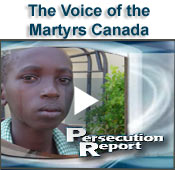While I was on vacation, I read "Mountains Beyond Mountains" by Tracy Kidder. This is a very thought provoking piece of non-fiction about a physician and anthropologist, Paul Farmer who is one of the founding members of Partners In Health, an organization which directs attention, money, and service toward the very poorest people on earth.
Farmer says there are two kinds of poverty: relative poverty, which we see primarily in the developed countries such as our own; and abject poverty, which is found in underdeveloped countries. The former is exemplified by those who are certainly restricted from higher education, full-service medical care, excellent nutrition, and comfortable housing by inadequate income and education. However, there is still a safety net in the form of food stamps, subsidized housing, universal primary education, and
emergency medical treatment. When we think of the kind of poverty that was revealed by Hurricane Katrina, it was this kind of relative poverty. Certainly these people live in very trying circumstances, and feel marginalized in our affluent culture.
The latter, who are the focus of Farmer and his organization, have no safely net. They lack shoes, potable water, access to even basic education and medical care, their housing is totally inadequate (i.e., dirt floors, leaking roofs, no insect screens, no furniture, etc.), they are landless and often disenfranchised by completely
dysfunctional governmental and cultural systems. For Farmer, the people of Haiti best exemplify this kind of poverty, and that country has been his primary focus.
Farmer had a very non-traditional upbringing, and, as an adult, practices Christianity in a non-traditional, though
Biblically driven way. Many Christians would struggle with his salty language and some other
eccentricities of his life-style. However, it would be hard to argue against the fact that he is one of the few who is absolutely focused on living out the teachings of Matthew 25- "Whatever you did for one of the least of these brothers of mine, you did for me."- meaning that he focuses on serving those who are hungry, thirsty, strangers, naked, sick, or in prison. He has used his education and the connections formed by his time at Duke and Harvard to bring attention and help to these afflicted people.
While others in Partners In Health chose to work with the big picture by bringing their needs to the attention of the World Health Organization or the Gates Foundation, Farmer has always been known for his personal attention to the individuals he treats. He argues that healing someone, then sending them back to the very conditions that caused their illness in the first place (malnutrition, impure drinking water, constant exposure to malarial mosquitoes, etc.) is a fool's errand. He takes a holistic approach to medical intervention. While he has long been one of the top experts on TB, he has also taken his methodology into the AIDS epidemic, including the explosion of cases of both diseases in the prison system of the former Soviet countries. He sees
prisoners as humans in need of healing, no matter how monstrous their crimes, and is unique in his ability to rally a staid international medical establishment to tackle issues that most would not care to think about.
I found this book, and Farmer himself, inspiring. He will challenge you on every level to think about your prejudices, phobias, and political philosophies. You will, perhaps for the first time, realize what one individual can do to make a difference of global significance. You will wonder what you could be doing yourself. Your eyes will be opened, your comfort afflicted by what you read. I
recommend it to everyone.
To read another review, see
Donna's post.





 I always come back to the house singing "Bibbidi, Bobbity, Boo!". I wonder why?
I always come back to the house singing "Bibbidi, Bobbity, Boo!". I wonder why?







































